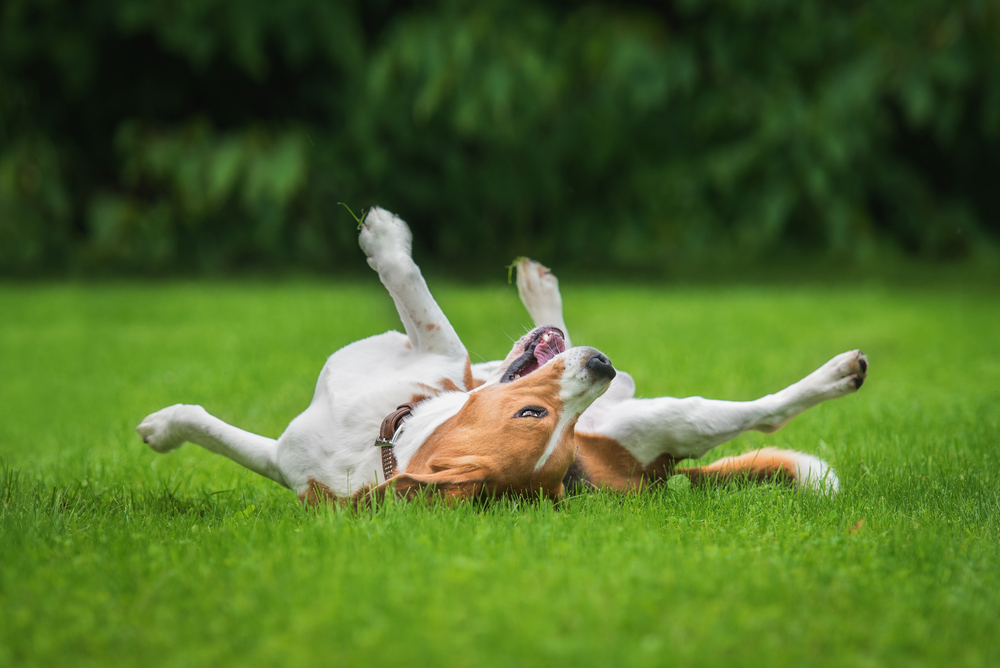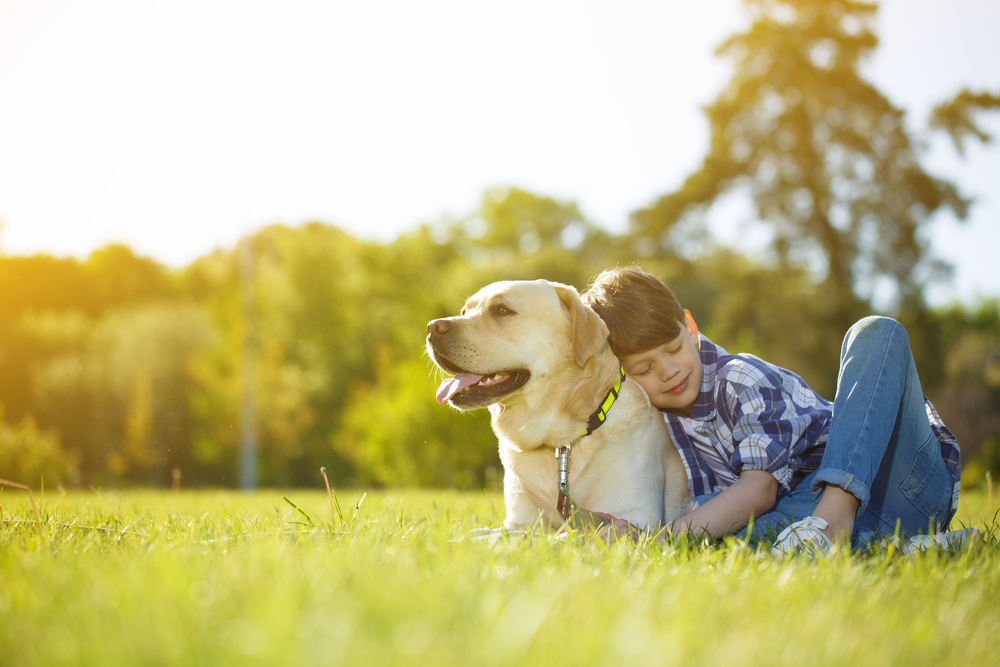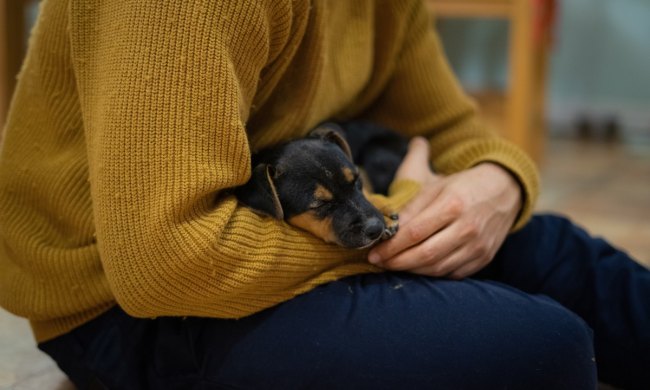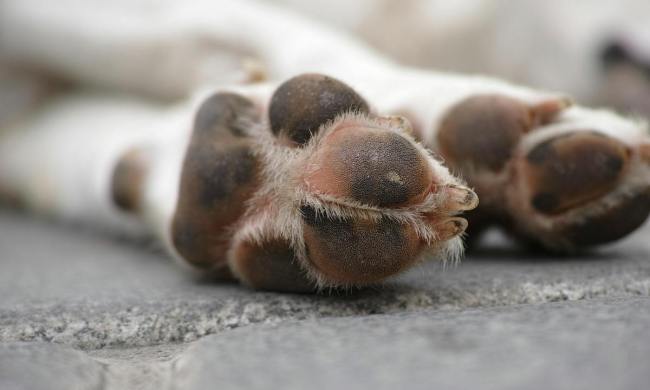It’s a sobering fact: More than 200,000 dogs are accidentally poisoned in the United States each year. From eating our medications and chocolate to nibbling on toxic plants and toads, sometimes our dogs’ overzealous appetites get them into big trouble.
One of the most common and dangerous substances dogs ingest is lawn care products. Fever, vomiting, and muscle tremors are just a few signs that the lawn and garden products you’re using may be making your dog sick. What’s a lawn-loving pet owner to do? Not to worry. With a little know-how and some careful application, you can have a healthy lawn without sacrificing your dog’s health.

Harmful ingredients
It probably won’t surprise you to know that many popular lawn and garden products contain harmful chemicals that can be dangerous to both humans and animals. After all, these products are designed to kill undesirable elements in our yards, like weeds and insects. So, the first step in choosing safe products is to understand which ingredients can cause harm.
Some of the more dangerous insecticides include those that contain:
- Carbamates, which are typically used in sprays or baits to kill insects such as cockroaches, ants, fleas, and crickets
- d-Limonene, for which the active ingredient is citrus peel extract, which repels insects, mites, and mealybugs
- Pyrethroids, which are synthetic insecticides found in pet sprays, mosquito repellents, and head lice treatment and are used to stop insect infestations in homes and gardens
- Organophosphates, which are pesticides such as diazinon, are commonly used in the garden and on pest strips to control insect populations
Harmful chemicals in herbicides and fertilizers include:
- Phenoxy herbicides, which are some of the most widely used to control broadleaf weeds
- Benzoic acid, also commonly used to control broadleaf weeds
- Organochlorines, a group of synthetic pesticides used to control pest infestation mostly in agricultural soil
- Urea, a synthetic chemical used to mimic nitrogen

Organic isn’t always safer
Before you opt for totally organic products, you should know that just because something is made with organic ingredients doesn’t necessarily mean it’s completely safe for your pets. Unfortunately, organic products can cause the same reaction in your dog as their chemical counterparts.
- Blood meal is made from dried, ground animal blood and is used as a source of nitrogen and phosphorus as well as deer or rabbit repellent. Ingestion can cause vomiting, diarrhea, and pancreatitis.
- Bone meal is made from dried, powdered animal bones and can congeal in your dog’s gastrointestinal tract if consumed in large amounts.
- Manure, which will probably smell, can entice your dog to eat it.
- Fish emulsion can cause digestive upset, especially when consumed.
All types of pesticides, herbicides, and fertilizers can cause illness. Your dog is at risk whether he inhales the products, absorbs them through his skin, or decides to eat them. Exposure can cause anything from an allergic reaction to long-lasting and deadly effects, such as lymphoma and neurological disorders.
Where to find pet-friendly lawn and garden products
So, what’s a pet parent to do? Fortunately, you’re not the first pet owner who wants a nice lawn and a healthy pet. Most home and garden stores carry products designed specifically for families concerned about providing a healthy environment for all members of the family. You can also find a great selection online. Here are a few suggestions to get you started:
Kids and pets don’t have to wait to play on treated areas with Scotts Natural Lawn Food. Ingredients include hydrolyzed feather meal, meat meal, bone meal, and sulfate of potash.
The active ingredients in NatureShield Insect and Pest Repellant are garlic, cinnamon oil, castor oil, and cedar oil. Notwithstanding its strong garlic smell, it effectively and naturally kills fleas, ticks, and mosquitoes, along with other pests on your lawn and in your garden.
Safety tips
Thanks to the U.S. Environmental Protection Agency, all hazardous materials must be properly labeled. Not only are precautions printed on the front of the packaging, but you can also search online for a product’s safety data sheet to learn about its toxicity and other potential dangers.
Regardless of which lawn care products you ultimately purchase, always:
- Make sure you read the application instructions and follow them carefully, especially the length of time to keep children and pets off treated areas.
- Keep all pesticides, herbicides, and fertilizers safely locked away from pets and children.
- Monitor your pets whenever they are outside to make sure they aren’t eating something they shouldn’t.
As a bonus, being mindful about the products you use on your lawn is also beneficial to the environment. In other words, pet-friendly products also are kind to Mother Earth. And that makes for a serendipitous feeling we can all appreciate.


